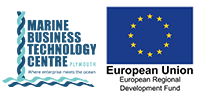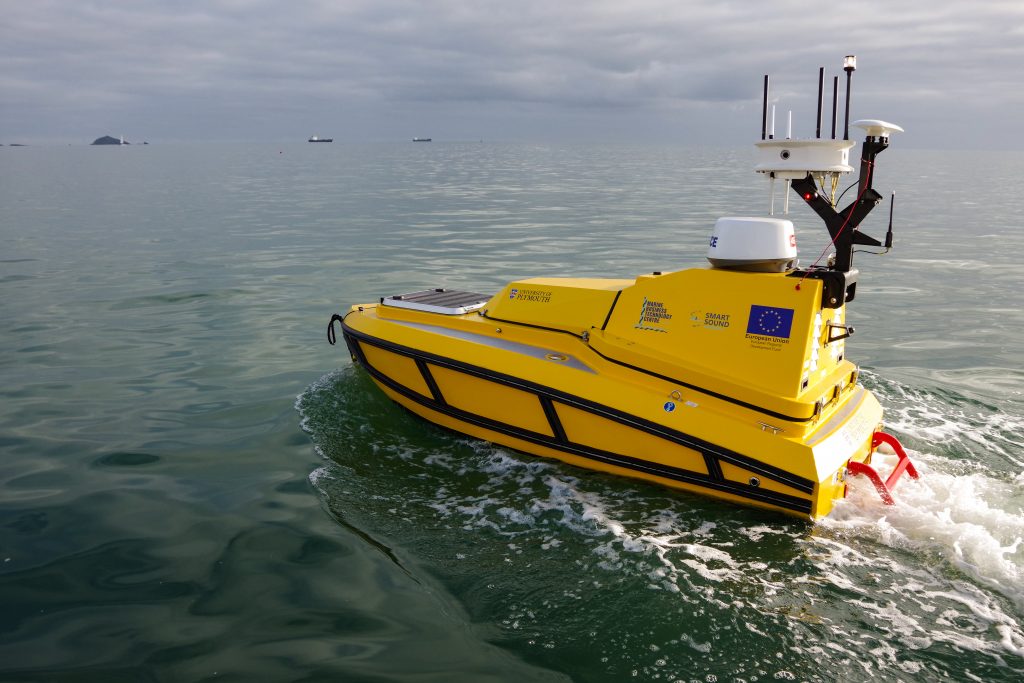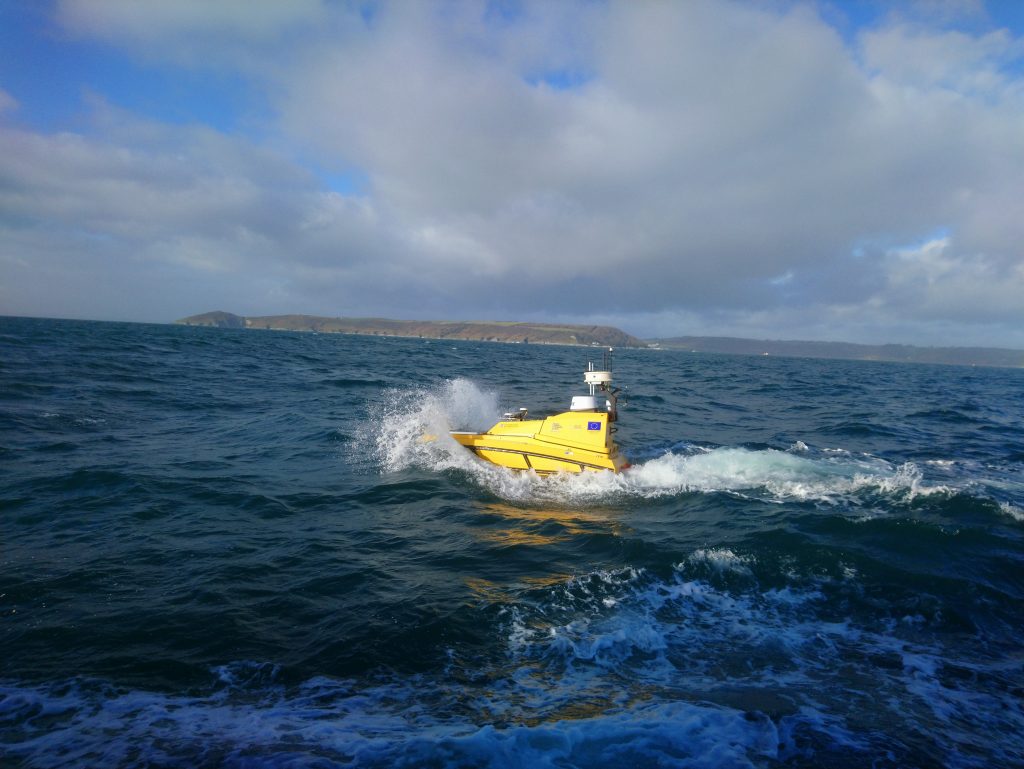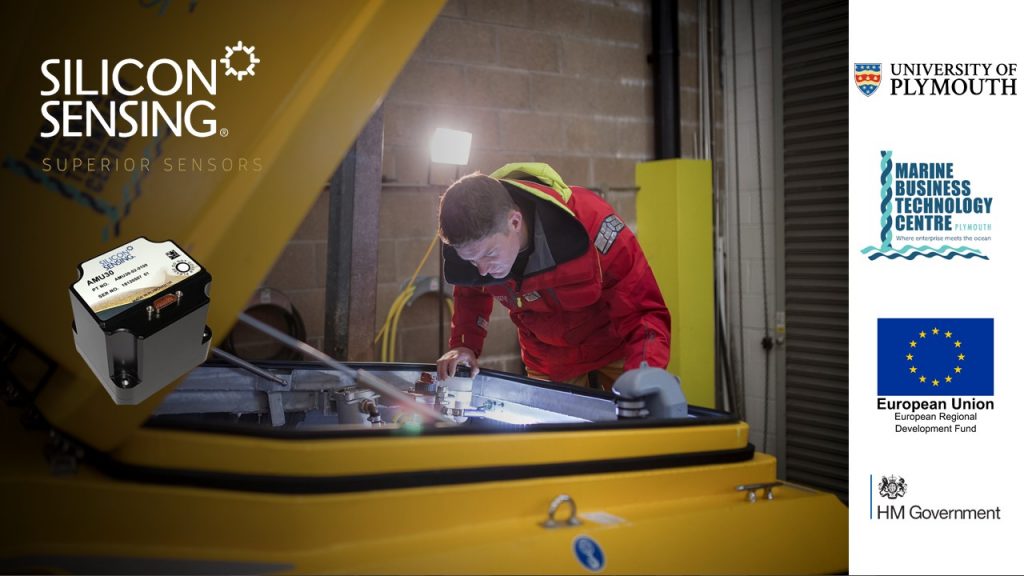Project Overview
The University of Plymouth has been working with a Devon-based company, Silicon Sensing Systems Ltd, to test and optimise the capability of the company’s latest sensor being used within the marine autonomy market. It will be going into service aboard the world’s first uncrewed Atlantic crossing by a scientific vessel, the Mayflower Autonomous Ship (MAS).
Silicon Sensing Systems design and manufacture leading Micro-Electro-Mechanical Systems (MEMS) based inertial sensors for a range of hi-technology markets and have long history of applying these technologies to meet the needs of fast-growing offshore industries. MEMS inertial sensors make up the component elements of systems required for precise motion and position monitoring and control on ships, submersibles and other marine craft.
MAS is a grassroots initiative led by marine research non-profit ProMare with support from IBM and a global consortium of partners, including MSubs, Silicon Sensing Systems and the University here in Plymouth. Working in tandem with oceanographers and other vessels, MAS provides a flexible, cost-effective and safe option for gathering critical data about the ocean.
How did the MBTC support the business?
Aaron Barrett, Technical Specialist (Marine Autonomous Systems) at the University of Plymouth, worked with the technical team at Silicon Sensing Systems to develop a sea trial experimentation using USV CETUS, a state of the art C-Worker 4 uncrewed surface vessel made by L3 Harris and owned by the University of Plymouth. This platform is part-funded by the European Regional Development Fund (ERDF) as part of the University’s participation in the Marine Business Technology Centre (MBTC) project.
The free use of USV CETUS includes access to Smart Sound Plymouth via the University’s fleet of research vessels and commercial workboats, with the University’s experienced skippers and technical experts on hand to support complex marine technology trials at sea.
First, Aaron integrated the company’s MEMS inertial measurement unit sensor into USV CETUS, including data connection and logging systems. He then worked with Harbour Master authorities, skippers and technical support staff to plan, permit and deliver a sea trial campaign to operate CETUS in varying sea states within and outside Plymouth Sound’s Breakwater in conjunction with the university Research Vessel Falcon Spirit as the mothership. The trial was successfully completed with data recorded and delivered to the business, and onward opportunities to interpret this data with a future cohort of control systems students being explored.
Testimonials
“Being based in Devon, Silicon Sensing has a long history of collaborating with various groups within the University of Plymouth. This latest opportunity, supported through the MBTC, allows companies like ours to access one of the most advanced autonomous marine platforms in its class that is commercially available today. Furthermore, the University of Plymouth provides exceptional technical expertise, along with the complete infrastructure to deploy such a platform, which provides a fantastic opportunity for real world data collection that would normally be out of the reach of many similar companies. While our sensors are used in many industries, it is collaborative partnerships such as these that allow us to further develop our product offerings for the marine autonomy sector, where small, high performing and reliable MEMS are naturally suited”
– Darioosh Naderi, Business Development Manager for Silicon Sensing Systems Limited
“Silicon Sensing Systems are ideally positioned as a technology company to address the challenge of marine autonomy. It is exciting for us to help a company with such a longstanding pedigree in the field of positioning systems towards the goal of a globally significant mission such as the MAS voyage. The company also plays an active role in the Future Autonomous at Sea Technologies (FAST) Cluster, which is pulling together organisations large and small to drive the technology advances needed to create economic opportunity and new marine tech jobs right here in Devon. This type of collaborative activity reflects the key role the University and projects like MBTC are playing in reducing the significant cost of offshore R&D whilst simultaneously adding value, not only for the industry but for the next generation of talent emerging to join it.”
– Steven Rice, Project Manager, Faculty of Science and Engineering
Benefits
• What where the project results?
o Professional custom integration of a proprietary sensor system using dedicated specialist technical resource under confidentiality.
o Successful offshore data gathering mission to harvest a variety of datasets in support of further product calibration and optimisation, at zero cost at the point of delivery to the business.
• What effect did these results have on the business?
o Field data provided by USV CETUS will give the business vital intelligence on the performance of its sensors in sea states and situations that will occur in marine applications.
o In working with Smart Sound Plymouth via the University of Plymouth, the business has become more familiar with a collaborative process that it is hoped will continue as new platforms and development challenges emerge in the fast growing industry.
Media Links
• Silicon Sensing Systems Ltd – https://www.siliconsensing.com/applications/marine/
• Mayflower Autonomous Ship – https://www.mas400.com/
• USV CETUS – https://www.plymouth.ac.uk/news/vessel-confirms-universitys-place-at-forefront-of-autonomous-ocean-science
• Autonomous Marine Systems Research Group at The University of Plymouth – https://www.plymouth.ac.uk/research/autonomous-marine-systems
• Smart Sound Plymouth – https://smartsoundplymouth.co.uk/Home
• Future Autonomous at Sea Technologies (FAST) Cluster – https://smartsoundplymouth.co.uk/Industry
• L3 Harris – https://www.asvglobal.com/










